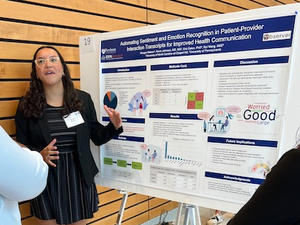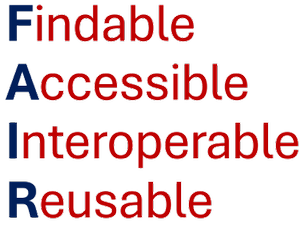About
Founded in September 2023, the AI-4-AI Lab, is a joint venture of the University of Pennsylvania Perelman School of Medicine and the School of Engineering and Applied Science. Our mission is to advance ambulatory healthcare by harnessing and repurposing multidisciplinary scientific expertise within and outside of biomedicine. Through our research acumen and access to clinical data and environments, we also aim to facilitate progress in computational science applied to biomedicine generally.
Core Values
Care Delivery - Inspired Clinical Informatics
The principles of sociotechnical ethnography—the study of how people interact with technology in their everyday lives—drive our research agenda. We look not just at how technology is built but also at how it's used, who should use it, where in the care process it should be used, and the social and cultural context around it. We pay attention to the issues of healthcare disparities, equitable access, and misinformation that may impact the effective integration of technology into ambulatory care.
Pragmatic and Aspirational Thinking
 The world of AI is advancing at a meteoric pace. Simultaneously, enterprising start-ups are emerging with funding that significantly surpasses what traditional university labs can raise. Rather than attempting to do research that competes with work currently underway by large healthcare corporations, we try to introduce tomorrow's concepts to today's clinical environments. By necessity, we need to think pragmatically, using available technology, even experimentally, to propose novel solutions. However, we must use our resources to design aspirationally for a future where better technology can easily be integrated into the sociotechnical ecosystem that will outperform our early-phase products.
The world of AI is advancing at a meteoric pace. Simultaneously, enterprising start-ups are emerging with funding that significantly surpasses what traditional university labs can raise. Rather than attempting to do research that competes with work currently underway by large healthcare corporations, we try to introduce tomorrow's concepts to today's clinical environments. By necessity, we need to think pragmatically, using available technology, even experimentally, to propose novel solutions. However, we must use our resources to design aspirationally for a future where better technology can easily be integrated into the sociotechnical ecosystem that will outperform our early-phase products.
Application-Inspired Computational Advances
Just as we drive inspiration for novel applications of computational approaches from real-world problems in ambulatory care, we embrace the idea of using real-world sociotechnical applications to inform advances in engineering, including computer vision, robotics, bioengineering, and other engineering sciences.
Creating and Using FAIR Data
Our lab is at the forefront of utilizing and contributing FAIR (Findable, Accessible, Interoperable, and Reusable) data to the research community. We are uniquely positioned with access to electronic health record (EHR) data, raw video footage from actual patient encounters, and detailed logs of user interactions with technology. We are pioneering the creation of the first-ever de-identified multimodal dataset tailored for medical research using these data sources. This groundbreaking work aims to enhance the discoverability and usability of data across the healthcare field, driving innovation and improving patient outcomes.





